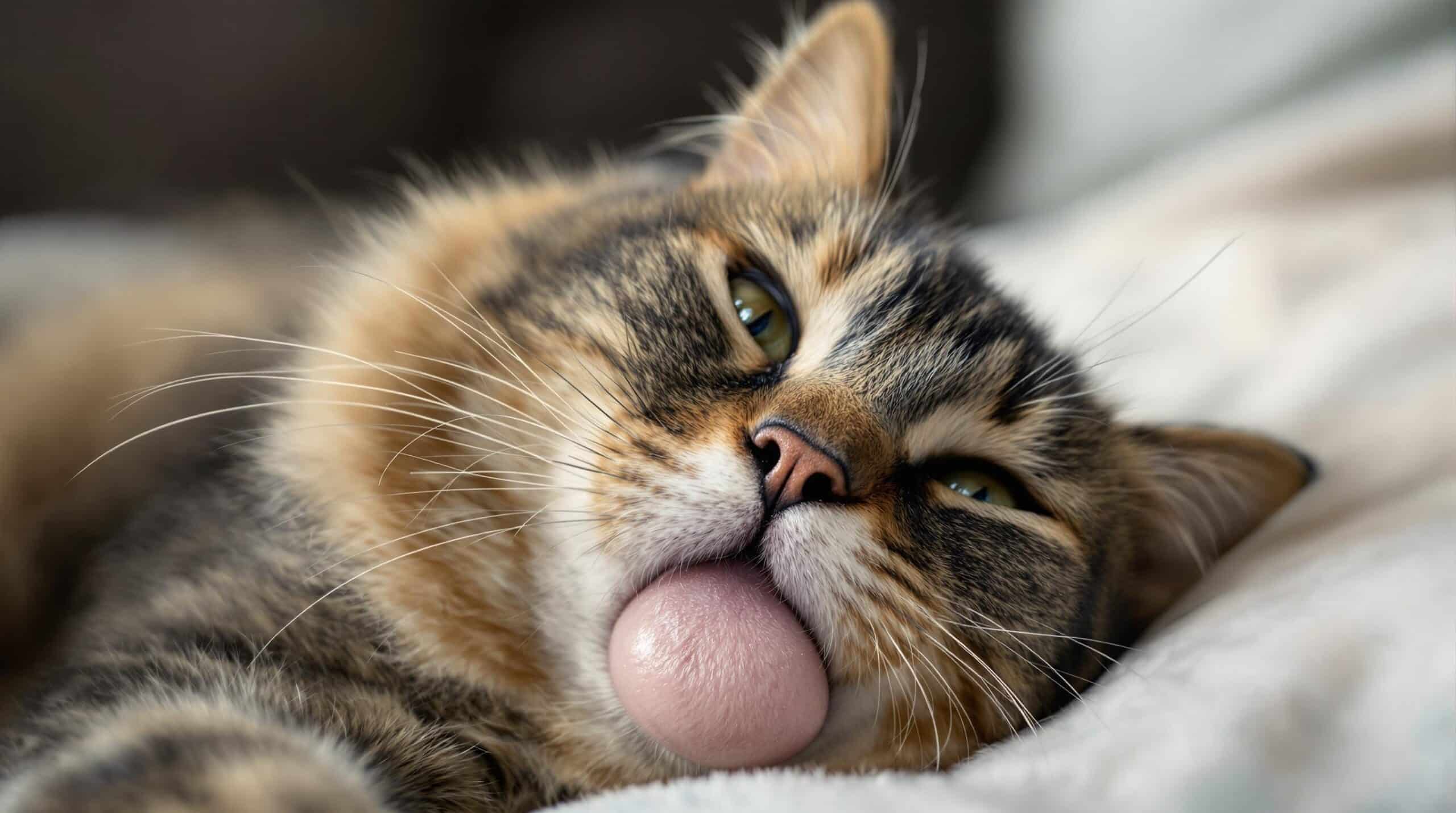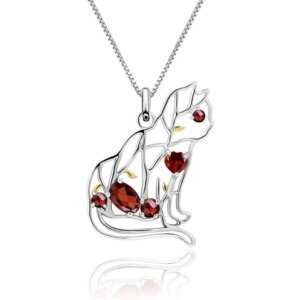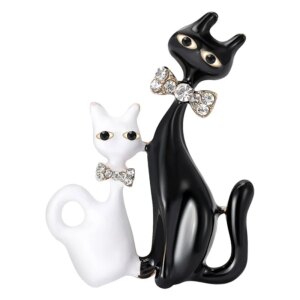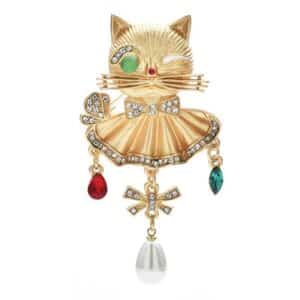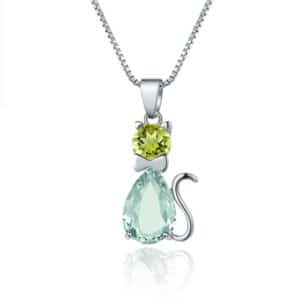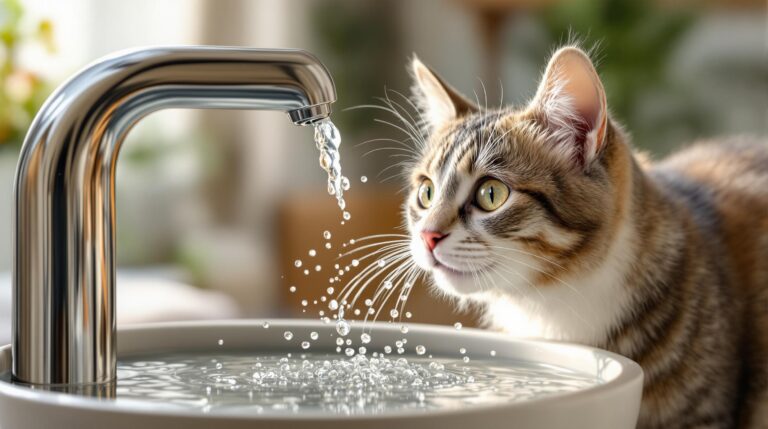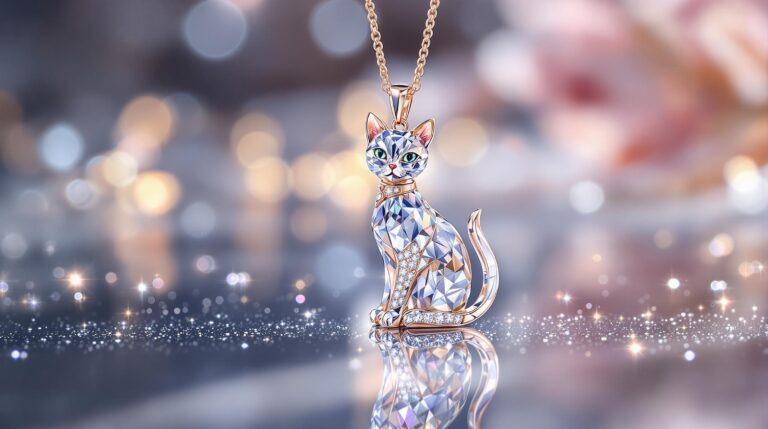At Cat Karma Creations, we understand that a cat’s bottom lip swollen can be a concerning issue for pet owners. This article will explore the common causes, symptoms, and treatments for cat lip swelling. We will also provide practical tips for caring for your cat and preventing future issues. By the end, you’ll have a comprehensive understanding of how to address this condition and ensure your feline friend’s well-being.
Common Causes of Cat Lip Swelling
Infections
Cat lip swelling can often be caused by infections, which are typically due to bacteria. These infections can lead to cat lip abscesses, where the lip becomes swollen, red, and may produce pus. Common signs of an infection include increased warmth, redness, and tenderness around the swollen area. If you suspect your cat has an infection, it’s crucial to consult a veterinarian for proper treatment, which may include antibiotics and drainage of the abscess. At Cat Karma Creations, we recommend regular check-ups to prevent such issues.
Injuries
Cats are curious creatures and can easily injure their lips while playing or exploring. Injuries such as cuts, bites, or punctures can cause cat lip swelling. These injuries can be painful and may lead to secondary infections if not treated promptly. If you notice any signs of injury, such as cuts or bruises, it’s important to clean the area gently and seek veterinary care if the swelling persists or worsens. We offer cat-themed jewelry to remind you of your furry friend’s adventurous spirit.
Allergies
Allergies are another common cause of cat lip swelling. Cats can be allergic to various substances, including certain foods, environmental allergens, and even some medications. Allergic reactions can cause the lips to become swollen, itchy, and red. Identifying and avoiding the allergen is key to preventing further swelling. Your veterinarian can help determine the cause of the allergy and recommend appropriate treatments, such as antihistamines or hypoallergenic diets. At Cat Karma Creations, we understand the importance of a healthy diet and environment for your cat’s well-being.
Tumors
In some cases, cat lip swelling may be a symptom of a more serious condition, such as a tumor. Tumors can be benign or malignant and may cause the lip to become swollen, firm, and possibly bleed. If you notice any unusual growths or changes in your cat’s lip, it’s essential to have them evaluated by a veterinarian. Treatment options for tumors may include surgery, chemotherapy, or radiation therapy, depending on the type and stage of the tumor. We support cat rescue charities and encourage regular vet visits to ensure early detection and treatment.
Abscesses
Abscesses are pockets of infection that can form in the tissues of the lip. They are often caused by bacteria entering a wound or puncture. Symptoms of a cat lip abscess include significant swelling, redness, and the presence of pus. Abscesses can be painful and may require veterinary intervention to drain the infection and administer appropriate antibiotics. Early treatment is crucial to prevent the abscess from spreading and causing more severe complications. For more information, feel free to contact us at our contact form.
Symptoms of Cat Lip Swelling
Redness and Swelling
One of the most noticeable symptoms of cat lip swelling is redness and swelling. The affected area may appear puffy and inflamed, and the lip may feel warm to the touch. Redness and swelling can be caused by various factors, including infections, injuries, and allergies. If you notice these symptoms, it’s important to monitor your cat closely and seek veterinary care if necessary. At Cat Karma Creations, we offer silver cat earrings to celebrate your cat’s health and beauty.
Discomfort and Pain
Cats with cat lip swelling may show signs of discomfort or pain. They may avoid touching or biting their lip, and you might notice them pawing at their mouth or rubbing their face against surfaces. Pain can also affect their appetite and behavior, making them more irritable or less active. If your cat is showing signs of discomfort, it’s essential to have them examined by a veterinarian to determine the underlying cause and provide appropriate treatment. We understand the importance of a happy and healthy cat, which is why we create unique and stylish cat brooches.
Pus or Discharge
The presence of pus or discharge is a common symptom of cat lip swelling caused by infections or abscesses. Pus is a thick, yellowish fluid that indicates an active infection. Discharge may also be clear or bloody, depending on the cause. If you notice any pus or discharge from your cat’s lip, it’s important to seek veterinary care promptly. Your veterinarian may prescribe antibiotics and other treatments to address the infection and prevent further complications. For any questions or concerns, you can reach us at (800) 343-1604.
Difficulty Eating or Drinking
Cats with cat lip swelling may experience difficulty eating or drinking. The swelling can make it painful or uncomfortable for them to open their mouth or chew food. You might notice your cat drooling, dropping food, or avoiding their food and water dishes. If your cat is having trouble eating or drinking, it’s important to consult a veterinarian to determine the cause and provide appropriate care. In some cases, your veterinarian may recommend a soft or liquid diet to help your cat maintain proper nutrition. We offer a range of stylish cat lover necklaces to show your support for your feline friend.
Diagnosing Cat Lip Swelling
Veterinary Examination
A thorough veterinary examination is essential for diagnosing cat lip swelling. Your veterinarian will perform a physical exam to assess the extent of the swelling and look for any signs of infection, injury, or other underlying issues. They may also ask you about your cat’s medical history, diet, and recent activities to help identify potential causes. Based on their findings, your veterinarian may recommend further diagnostic tests to confirm the diagnosis and develop an appropriate treatment plan. At Cat Karma Creations, we emphasize the importance of regular vet visits to keep your cat healthy and happy.
Diagnostic Tests
Various diagnostic tests can help identify the cause of cat lip swelling. These may include blood tests, X-rays, ultrasounds, and biopsies. Blood tests can help detect signs of infection or inflammation, while X-rays and ultrasounds can provide images of the affected area to identify any abnormalities. Biopsies may be necessary to determine if a mass is benign or malignant. Your veterinarian will recommend the most appropriate tests based on your cat’s symptoms and overall health. For more information on our products, visit our all jewelry page.
Differential Diagnosis
Differential diagnosis involves considering and ruling out various potential causes of cat lip swelling. This process helps your veterinarian narrow down the most likely cause and develop an effective treatment plan. Common differential diagnoses for cat lip swelling include infections, injuries, allergies, tumors, and abscesses. By carefully evaluating your cat’s symptoms and performing the necessary diagnostic tests, your veterinarian can provide an accurate diagnosis and appropriate care. At Cat Karma Creations, we support the well-being of all cats and encourage regular check-ups.
Treating Cat Lip Swelling
Medical Treatments
The treatment for cat lip swelling depends on the underlying cause. For infections, your veterinarian may prescribe antibiotics to eliminate the bacteria causing the swelling. If the swelling is due to an abscess, they may need to drain the infection and prescribe antibiotics. For allergies, antihistamines or hypoallergenic diets may be recommended. In cases of tumors, surgery, chemotherapy, or radiation therapy may be necessary. It’s important to follow your veterinarian’s instructions carefully and complete the full course of treatment to ensure your cat’s recovery. We offer wrap around cat rings to symbolize the bond between you and your cat.
Home Remedies
While medical treatments are often necessary for severe cases of cat lip swelling, there are some home remedies and first aid tips you can use to provide comfort and support. Gently cleaning the affected area with a warm, damp cloth can help reduce inflammation and prevent further irritation. Applying a cold compress can also help alleviate swelling and discomfort. If your cat is having trouble eating, try offering soft or liquid food to make it easier for them to eat. However, it’s important to consult your veterinarian before using any home remedies to ensure they are safe and appropriate for your cat’s condition. For more tips and advice, feel free to contact us at info@catkarmacreations.com.
Preventive Measures
Preventing cat lip swelling involves maintaining good hygiene and regular veterinary care. Regularly cleaning your cat’s face and mouth can help prevent infections and reduce the risk of injuries. Feeding a balanced diet and avoiding potential allergens can also help prevent allergic reactions. Regular vet visits are essential for early detection and treatment of any issues. If your cat has a history of lip swelling, your veterinarian may recommend more frequent check-ups and additional preventive measures to keep them healthy. At Cat Karma Creations, we offer a variety of cat-themed gifts to show your love and support.
Popular Quote
“Cats are connoisseurs of comfort.” – Jim Davis
This quote reminds us that our feline friends are sensitive to their surroundings and need our care to stay comfortable and healthy.
Statistical Fact
According to the American Veterinary Medical Association (AVMA), approximately 60% of cats will experience some form of dental or oral health issue during their lifetime. Regular check-ups and proper care can significantly reduce the risk of these issues. (Source: AVMA)
Three Tips for Managing Cat Lip Swelling
- Regular Check-Ups: Schedule regular veterinary check-ups to monitor your cat’s oral health and catch any issues early. Early detection can prevent more serious conditions.
- Good Hygiene: Keep your cat’s face and mouth clean by gently wiping them with a damp cloth. This can help prevent infections and reduce the risk of injuries.
- Healthy Diet: Feed your cat a balanced diet to support their overall health. Avoid potential allergens and consult your veterinarian if you suspect your cat has food sensitivities.
Popular Questions
- What are the most common causes of cat lip swelling? The most common causes include infections, injuries, allergies, and tumors. Each cause requires a different approach to treatment.
- How can I tell if my cat’s lip swelling is due to an infection? Signs of an infection include redness, warmth, pus, and tenderness. If you notice these symptoms, consult a veterinarian for a proper diagnosis and treatment.
- Can I treat my cat’s lip swelling at home? While some home remedies can provide comfort, it’s important to consult a veterinarian for a proper diagnosis and treatment plan, especially for severe cases.
- How often should I take my cat to the vet for check-ups? Regular check-ups are essential for maintaining your cat’s health. Your veterinarian can recommend a schedule based on your cat’s age and health status.
Final Thoughts About cats bottom lip swollen
Cats bottom lip swollen can be a sign of various underlying issues, but with proper care and timely treatment, your cat can recover quickly. Regular vet visits and good hygiene practices are essential for preventing future occurrences. If you notice any signs of lip swelling in your cat, don’t hesitate to seek professional help. Your cat’s health and happiness are worth it. For more information or to explore our unique and stylish cat-themed jewelry, visit our website at Cat Karma Creations.
For personalized assistance or to place a custom order, feel free to contact us at our contact form or call us at (800) 343-1604. We are here to help you and your furry friend!
Comparison Table
| Feature | Cat Lip Abscess | Cat Lip Tumor | Cat Lip Allergy |
|---|---|---|---|
| Cause | Bacterial infection | Abnormal cell growth | Allergens (food, environment) |
| Symptoms | Swelling, redness, pus | Swelling, firm mass, bleeding | Swelling, itching, redness |
| Treatment | Antibiotics, drainage | Surgery, chemotherapy | Antihistamines, avoidance |
| Prevention | Good hygiene, regular check-ups | Regular vet visits, early detection | Identify and avoid allergens |
| Prognosis | Good with timely treatment | Variable, depends on type | Generally good with management |
Key Points to Remember
- Understand the common causes of cat lip swelling, such as infections, injuries, and allergies.
- Learn to recognize the symptoms of cat lip swelling, including redness, swelling, and discomfort.
- Explore the different types of cat lip swelling and their specific treatments, such as antibiotics for abscesses and surgery for tumors.
- Discover home remedies and first aid tips to care for a cat with a swollen lip, including cleaning and soothing the area.
- Understand the importance of a proper diagnosis and regular vet visits to manage and prevent cat lip swelling.
- Find out how to prevent cat lip swelling through proper diet, hygiene, and regular check-ups.

